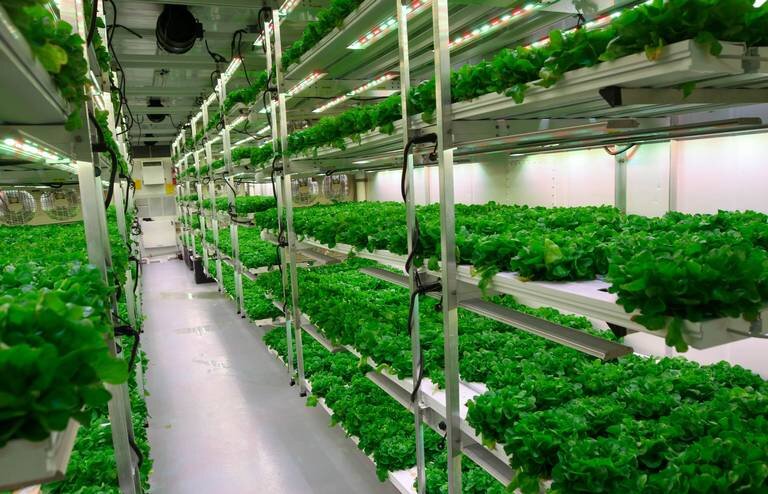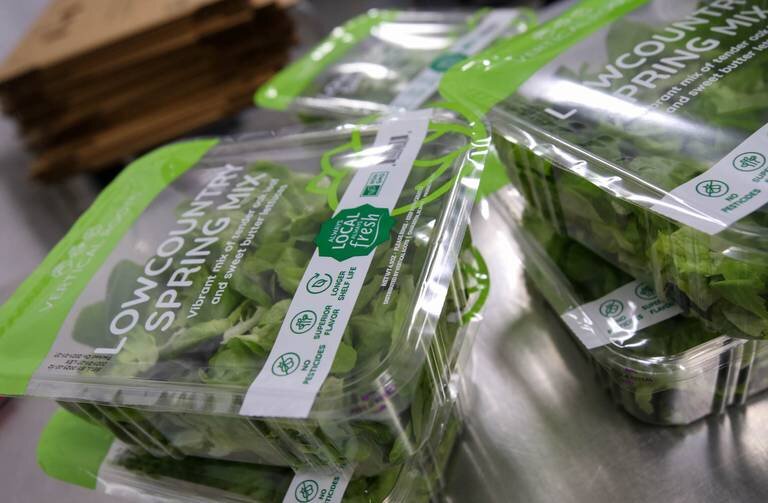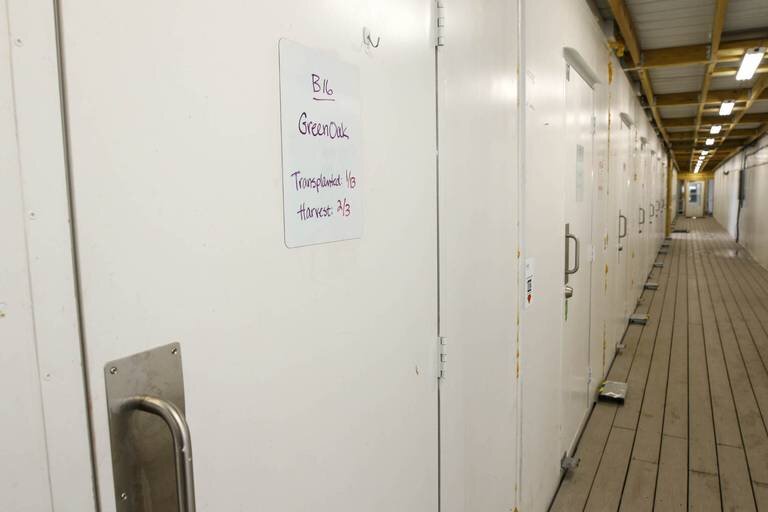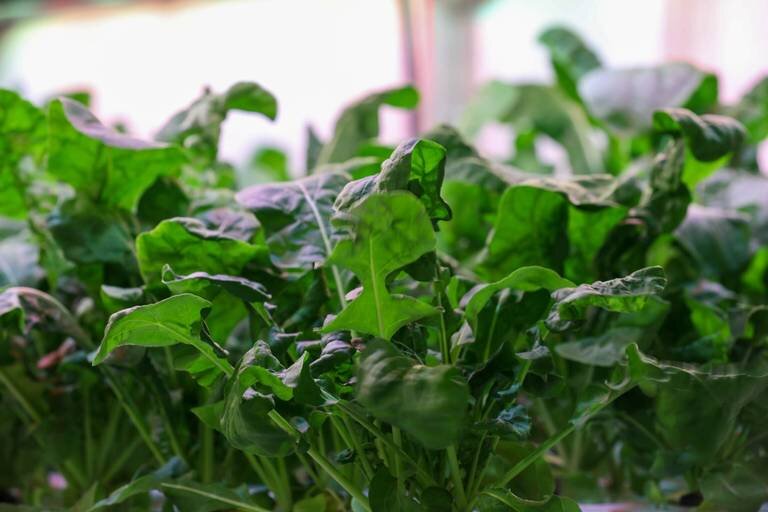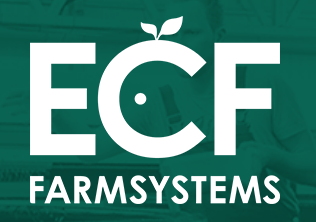
Welcome to iGrow News, Your Source for the World of Indoor Vertical Farming
US - SOUTH CAROLINA: VIDEO: Columbia Vertical Farm Uses Technology To Cut Plastic Pollution And Boost Sustainability
With the use of agricultural technology, Vertical Roots farm in West Columbia created a packaging system for its leafy greens that cut down the company’s plastic usage by 30% and extends the shelf life of the lettuce
FEBRUARY 01, 2021
Vertical Roots is the largest hydroponic container farm in the country. They grow and package lettuce varieties and have recently implemented a packaging process that reduces plastic with a resealable film. TRACY GLANTZ TGLANTZ@THESTATE.COM
With the use of agricultural technology, Vertical Roots farm in West Columbia created a packaging system for its leafy greens that cut down the company’s plastic usage by 30% and extends the shelf life of the lettuce.
In 2015, high school friends Andrew Hare and Matt Daniels created the idea for Vertical Roots, now the largest hydroponic container farm in the country. Hare is the general manager of the company and Daniels acts as the chief horticulturist.
The first Vertical Roots opened in Charleston and expanded with its second farm site in West Columbia in 2019. Vertical Roots parent company, AmplifiedAg, manufactures the container farms and farm technology of which Vertical Roots operates.
The farms are part of a growing industry called controlled environmental agriculture (CEA) that uses technology to ramp up nutrient-rich food production year-round.
Hydroponics helps the farm uses 98% less water than traditional farming, according to Hare. Their technology creates an indoor environment to grow lettuce on the East Coast. Most lettuce in the U.S. comes from California and Arizona, where temperatures do not fluctuate much throughout the year, traveling 2,000 miles from farm to table. Vertical Roots offers a solution for local lettuce.
“Our mission is to revolutionize the way communities grow, distribute and consume food,” said Hare. As populations grow, Hare said the ability to produce enough food is a global concern.
VERTICAL ROOTS AGRICULTURAL INNOVATION
As a company committed to sustainability, Vertical Roots had to address its plastic usage and the consumer demand for environmentally friendly products.
“I think everyone can agree that the amount of plastic that’s consumed and used globally is a bit of a problem,” said Hare.
If Vertical Roots were to completely opt-out of using plastics, as much as 40% of the lettuce would be damaged in transportation to the retailers, Hare said. So the company decided to still use plastic containers in order to cut out food waste, but it changed the amount and type of plastic used.
By replacing the conventional “clamshell” plastic lids that you see on a container of lettuce at the grocery store, Vertical Roots cut down more than 30% of plastic usage by creating a resealable film lid. The new packaging comes at no extra cost to the customer and will be cheaper in the long-run for Vertical Roots, according to Hare.
The farm also uses recycled plastic that can also be recycled again after use. Tiny perforations in the film lid of the packaging allows air to leave the lettuce container and extends the product’s freshness, making Vertical Roots lettuce last around 14 days on the shelf.
“We tested respiration and condensation with each lettuce variety, and ultimately found that we could extend the freshness and shelf life of our salad mixes even more,” said Hare.
GROWTH IN THE AGRICULTURAL TECHNOLOGY INDUSTRY
In the first three quarters of 2020, a record $754 million of venture capital was invested in the vertical farming industry, according to PitchBook data. This was a 34% increase from the entire previous year, Bloomberg reported in a January article.
A 2019 report from Global Market Insights showed that the vertical farming market size, or the number of potential customers or unit sales, surpassed $3 billion in 2018 and said it, “will exhibit a massive compound annual growth rate (CAGR) of over 27% from 2019 to 2026.”
In vertical farms, crops are harvested on several vertical layers indoors, where farmers can grow year-round by controlling light, temperature, water, and other factors, according to the U.S. Department of Agriculture.
Vertical agriculture is also seen as a growing industry because it “could help increase food production and expand agricultural operations as the world’s population is projected to exceed 9 billion by 2050,” according to the USDA.
However, some are skeptical about the future of vertical farming for several reasons. The farms use LED light bulbs to grow the crops, which require a lot of energy and money to operate.
Also, the farms mostly produce greens, which are low in calories because they take less water and light. The new farming technology is marketed as a way to combat world hunger, but in poorer countries, low-calorie greens are not as beneficial, according to Bloomberg.
THE FUTURE OF VERTICAL ROOTS
Despite a tough year due to COVID-19, Vertical Roots will open two more indoor, container farms in Georgia and Florida in 2021.
The company lost revenue from foodservice customers like restaurants, schools, and universities during the pandemic, said Hare.
Those food service customers accounted for about half of Vertical Roots’ business, Hare said. Grocery store business stayed steady and even grew during the pandemic. As schools and restaurants are slowly reopening, Vertical Roots is gaining business back.
The West Columbia farm location produces about $1.5 million pounds of produce per year, said Hare. Vertical Roots lettuce is in 1,200 different grocery stores in 11 states, including Lowes Foods stores, Publix, Harris Teeter, and Whole Foods Market chains.
Hare said the company is constantly working on sustainable initiatives, including figuring out a way to reduce light energy consumption by 20-25%, thinking about compostable packaging systems and finding ways to use less water at the farms.
In the future, Vertical Roots hopes to offer a larger variety of produce. The team is experimenting with growing foods like tomatoes, cucumbers, peppers, herbs and mushrooms to see if they could be viable products.
ONLINE SUMMIT: JASA Packaging Solutions Attends Virtual PMA Fresh Summit Expo
From October 13 to 15, the annual PMA Fresh Summit takes place - this year online - and JASA is attending! Presenting from a virtual booth, JASA will showcase their sustainable packaging solutions, complete packaging lines, revolutionary JASA Sleever, and the innovative Bag-2-Paper™
From October 13 to 15, the annual PMA Fresh Summit takes place - this year online - and JASA is attending! Presenting from a virtual booth, JASA will showcase their sustainable packaging solutions, complete packaging lines, revolutionary JASA Sleever, and the innovative Bag-2-Paper™. As icing on the cake: JASA participates in the fresh ideas showcase, where JASA exhibits their innovative sleeve packaging for tomatoes.
The U.S. produce industry meets
The Fresh Summit is the event where all the players from the American produce industry come together. This year, the fair takes place as a virtual event, which has the advantage that it is thus accessible to a large audience. After all, it is cheaper to register someone for a virtual event than to have them fly over for an event. Moreover, it saves time, given that it only takes a few hours to tour the virtual stands, as opposed to strolling around a fair for two full days.
JASA presents innovative and sustainable packaging solutions
With over 35 years of experience, JASA became a market leader in packaging for the produce industry. And that's what the company will show at the fair. From its booth, JASA will showcase its revolutionary packaging solutions, including our state-of-the-art Sleever and award-winning Bag-2-Paper™. These innovative packaging solutions are prime solutions for plastic-free packaging, and ideal for high-speed packaging of tomatoes, avocados, apples, kiwis, citrus, and more.
Your reliable partner for complete packaging lines
JASA will also provide information about complete packaging lines at its stand. Whether you are looking for a horizontal packaging line or a vertical packaging line, JASA can handle your complete packaging solution. JASA's packaging lines are flexible: you can easily switch between different sizes, packaging, and packaging materials. Also, JASA's packaging machines have a hygienic design, making them easy and quick to clean. The machines are also easy to use and maintain. And as a system integrator, JASA takes full ownership of your entire weighing and packaging process!
JASA goes live
JASA is a family business with a personal and open approach. This will also be reflected in our virtual booth. JASA will give live demonstrations of the equipment and show many photos and videos of the packaging machines and JASA's packaging solutions. Visitors to the stand will discover all there is to know about weighing and packaging equipment for leafy greens, tomatoes, fresh-cut fruits, and vegetables. Through the live chat feature, visitors can ask questions or have a chat. You can also admire JASA's Sleeve packaging for tomatoes at the fresh ideas showcase.
JASA looks forward to welcoming
all PMA attendees to her virtual booth.
Are you not registered yet? Click here!
Nature Fresh Farms Pledges To Plant 25,000 Trees In Sustainability Campaign
After two years of research and development, Nature Fresh Farms has officially launched their 100 percent home compostable Cucumber wrap, a first for the North American marketplace
Leamington, ON | October 1, 2020
Nature Fresh Farms has launched its sustainability campaign following the release of their new home compostable Cucumber wrap.
After two years of research and development, Nature Fresh Farms has officially launched their 100 percent home compostable Cucumber wrap, a first for the North American marketplace. Made from a starch-based PLA that is derived from plant-based resources, the film is home compostable breaking down naturally into CO2 and water within 90 days.
To celebrate its release and promote to consumers and customers alike, Nature Fresh Farms has launched a unique marketing campaign and want their followers to join in their initiative to make a difference. Their campaign has kicked-off with high-impact social media posts going live on their Instagram, Facebook, and LinkedIn accounts. Every time someone shares these posts during the month of October, they will plant a tree. With one share equalling one tree, the company is pledging to plant up to 25,000 trees to help our forests thrive.
“We really wanted to grab the attention of our consumers and followers with this home compostable film,” said Luci Faas, Product Development Specialist. “Through this initiative, we hope to raise awareness of this packaging design that will make a lasting change on the environment but also go even further by planting trees to help our North American forests flourish.”
This campaign seeks to spotlight the progression of their sustainable packaging design while encouraging their followers to spread the word by sharing social media posts and help plant a tree. The initiative supports Nature Fresh Farms commitment to bettering the environment and their continued investment in searching for more sustainable packaging designs.
“Our customers are looking for more environmentally friendly packaging and we want to give them that,” shared Director of Sales, Matt Quiring. “With our continued goal of finding more viable packaging solutions we want to provide more options and make it easier for most people to make positive environmental choices.”
At Nature Fresh Farms they are driven to accelerate innovation through evidence-informed sustainable packaging solutions providing a better experience for their customers, while also helping to preserve the vitality of our planet.
About Nature Fresh Farms
Continuously expanding, Nature Fresh Farms has become one of the largest independent, vertically integrated greenhouse vegetable farms in North America. As a year-round grower with farms in Leamington, ON, Delta, OH, and Mexico, Nature Fresh Farms prides itself on consistently delivering exceptional flavor and quality to key retailers throughout North America, while continuing to innovate and introduce more viable and sustainable growing and packaging solutions.
SOURCE: Nature Fresh Farms | info@naturefresh.ca T: 519 326 1111 | www.naturefresh.ca
Vertical Farm Opens First of 20 Planned Facilities
The 10,000 square-foot facility contains 6,500 square feet for production. It grows more than 20 cultivars, including leafy greens such as Romaine, arugula, kale, bok choy, and baby spinach, plus more than a dozen herbs, including basil, cilantro, and parsley
June 23, 2020
By Greenhouse Canada
Source: Local Leaf Farms
New Canadian agtech company Local Leaf Farms opened the doors to its new Barrie facility yesterday – the first of 20 planned to open by the end of 2025.
The 10,000 square-foot facility contains 6,500 square feet for production. It grows more than 20 cultivars, including leafy greens such as Romaine, arugula, kale, bok choy, and baby spinach, plus more than a dozen herbs, including basil, cilantro, and parsley.
Local Leaf Farms says they grow local produce that’s fresh, sustainable and fully traceable – addressing concerns by Canadian consumers.
The demand for local
According to an IPSOS study, 68 percent of Canadians say the COVID-19 pandemic has made food safety more important to them, and 47 percent say locally produced food is a top factor driving their purchase decisions. Nearly all Canadians (96 percent) prefer to buy produce grown in Canada, whether in their local community (21 percent), their province (41 percent), or elsewhere in the country (34 percent).
“Canadian consumers are demanding greater transparency about the food they eat. And that demand has never been more urgent,” said Steve Jones, President, and CEO of Local Leaf Farms. “As we begin to consider a post-COVID reality, we need to have real discussions about the stability – and overall future – of food production in this country. Local Leaf is bringing leading-edge technology to the food sector to produce the fresh, safe, and sustainable produce that Canadians are asking for.”
According to Local Leaf, the average package of leafy greens travels 3,000 km before it lands in a shopper’s cart at a Canadian grocery store. The journey can reportedly take up to two weeks, causing produce to lose up to 70 percent of its nutritional value and impacting taste, texture, and flavour.
To reduce the impact, all of Local Leaf Farms’ produce can be found at local grocery stores just hours after it is harvested, not only because of the facilities’ proximity but because it can be delivered directly without passing through distribution centres.
Automated and traceable
Local Leaf also offers a fully traceable food source, with instant access to information about the food from seed to shelf. The company’s proprietary technology and mobile app allow retailers and consumers to know exactly where their produce comes from, including detailed information on how it was grown, when and by whom. With automated technology, Local Leaf is able to employ an entirely local workforce, eliminating the need to rely on migrant labour – a workforce that has faced severe challenges in the face of COVID-19.
Connecting with consumers
“In addition to our year-round production in our vertical farm, our Barrie, Ontario location has converted its 20,000 square foot backyard to an outdoor community garden. This allows identified residents to grow their own food and learn from our agronomist and team in a collaborative environment,” says Local Leaf Farms.
Local Leaf’s facility is also open to the public once every month, allowing local residents to more closely connect with their food.
Eliminating plastic from packaging
In the results of the IPSOS study, more than two in three Canadians (68 percent) say that eliminating plastic from their food packaging is important, and half (51 percent) say they would prefer their leafy greens and herb packages be made of a non-plastic, compostable, plant-based material. In contrast, 21 percent would prefer produce to come packaged in recycled plastic, sometimes referred to as recycled PET.
“That’s why we’re excited to have sourced packaging that is made of non-plastic, compostable, plant-based material for all Local Leaf products,” says the team.
Plans for expansion
Local Leaf’s Barrie location services grocery stores, food service providers, and home meal kit providers within 50km of the farm. All of the produce, which is sold under the My Local Leaf brand, is pesticide- and herbicide-free, non-GMO, and packaged in 100 percent plastic-free compostable packaging. The company is on track to open its next location in Kingston in the coming months – and has a scale goal to launch 20 locations across the country by the end of 2025.
With files from Local Leaf Farms
Herbs, Sold Entirely in Paper Instead of Plastic
REWE and ECF Farmsystems are testing new forms of product packaging
Hauptstadt Basil Now Only in Recycled Paper
REWE and ECF Farmsystems are testing new forms of product packaging. The capital city basil produced in Berlin is now packed 100% plastic-free. Both the funnel-shaped plastic bag (sleeve) and the plastic pot are dispensed with. Instead, their Hauptstadt Basil will be packed exclusively in recycled paper. The customer can cut the bag along the dotted lines and the paper recycling bag becomes a substitute pot. The substitution of plastic bags saves approximately 2.1 tons of plastic per year.
In addition, the elimination of the pots saves about 5.1 tons of plastic per year. The innovation has a pilot function: If the new packaging method is accepted by the customers and proves itself in practice, its use can also be expected for other herb pots and nationwide.
Herbs in sustainable paper packaging / Picture: Rewe
As early as 2017, REWE and ECF Farmsystems tested new ways in transport packaging. By dispensing with plastic irrigation trays for the capital's basil, six tons of plastic waste were saved annually. Building on this experience, REWE also dispensed with transport irrigation trays for other products available nationwide, thus saving 90 tonnes of plastic per year for potted herbs alone.
Raising perch and growing herbs under one roof
Since the beginning of 2017 REWE and the Berlin start-up, ECF Farmsystems have been committed to a holistic and environmentally friendly process for the production of perch and basil: Aquaponics. The breeding of cichlids in the middle of Berlin is combined with the cultivation of herbs - because these are optimally fertilized by the nutrient-rich water from the fish farm. From fish food to plant fertilizer to basil and perch in the supermarket, there is a complete production cycle in the heart of the capital. At the same time, local cultivation shortens transport routes and cold chains for greater sustainability and freshness.
The capital city perch and capital city basil are available at 280 REWE stores in Berlin, Brandenburg and Mecklenburg-Western Pomerania.
Source: REWE
Publication date: Mon 25 May 2020



